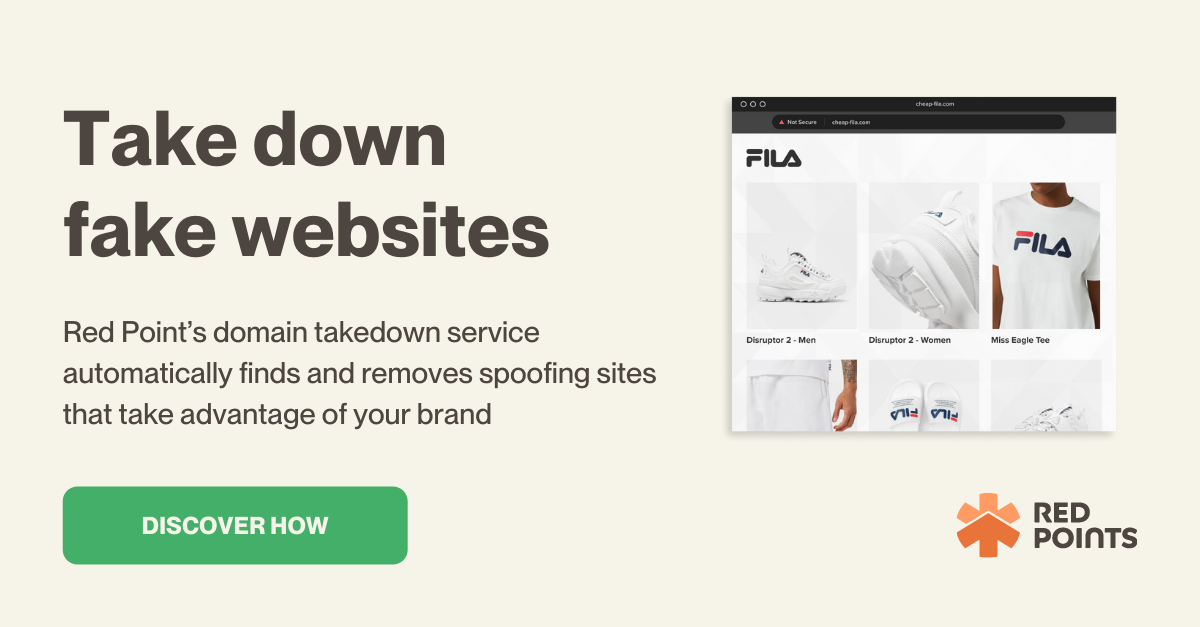WordPress is the leading content management system used by 43% of all websites which gives the platform a market share of 64% according to W3Techs. Millions of ecommerce owners and content creators use WordPress to create websites, publish content and market their products online.
Apart from the numerous benefits the platform provides for businesses of all sizes, website owners are facing a number of threats from scammers that exploit the platform’s popularity. In this article, we show you how to report a WordPress site for copyright infringement and review which other scams you should beware of.

What are the challenges site administrators are facing on WordPress?
Content theft
One of the most common frauds online is content theft, which is simply copying other people’s content and publishing it as your own. Competitors copy a variety of digital content including blog posts, images and more without asking for permission. Website content theft can lead to traffic loss, lower ranking, a decrease in customer loyalty and ultimately loss of revenue.
Content theft goes beyond copying a handful of images from an individual. Content thieves apply automated software that scans websites and copies content at scale.
Impersonation
Impersonation scams are fraudulent practices of copying identifying elements of a person, brand or organization in order to steal sensitive information, sell counterfeit products or execute a bank impersonation scam. When executed on platforms like WordPress, impersonators create look-a-like websites under fake web addresses, a practice also referred to as domain spoofing. Spoofers either use cybersquatting or typosquatting to create these fake web addresses.
Cybersquatting refers to the unauthorized registration and use of domain names of already existing brands and their trademarks. Typosquatting is the registration of slight variations or misspellings of a genuine domain name like “WordPres.com” instead of “WordPress.com”.
Impersonation scams on WordPress also come in the form of phishing attacks. Scammers create emails that appear to be from WordPress asking site administrators to update their database. By clicking on a link, you will be forwarded to a fraudulent site that looks legitimate to insert your credentials.
Intellectual Property infringement
Intellectual properties with respect to websites come in the form of copyrights and trademarks. Copyrights protect the original works of a creator, like a blog post on WordPress. Trademarks are phrases, symbols, designs and other elements that make an entity’s product or service distinguishable from another. Blog names can be trademarked for example.
Intellectual property infringements on WordPress come in the form of fake websites or stealing a logo or an entire article from your blog.
The policy of WordPress on fraudulent sites
WordPress has a liberal approach in terms of what content is allowed to be published on the platform. Freedom of speech is held high and any ideas and opinions can be expressed without censorship according to the user guidelines. WordPress encourages users to use the platform for speaking out against offensive or bad ideas on the platform instead of reporting them.
However, there is content and activities that violate the user guidelines and can be reported to WordPress which include:
- Intellectual property infringements
- Impersonation
- Spam or machine-generated content
- Illegal and threatening content
- Malicious codes like malware, adware, or spyware
- Advertising apart from WordPress ad services
- Pornography
In the next section, we walk you through the process of reporting a WordPress site.

How to report a WordPress site
If you find a WordPress site that infringes on your copyrights, you can submit a DMCA takedown notice through this form.
Step 1:
Before sending a takedown notice, WordPress demands you verify that the site in question is hosted by Automattic which is the platform’s host. It is important to know that WordPress blogs can also be hosted on third-party servers that use the self-hosted WordPress.org software. WordPress will not take action against sites that aren’t hosted on their own servers. More information on the difference between WordPress.com and WordPress.org can be found on this page.
Additionally, WordPress requests to contact the site owner and try to solve the matter directly between you and the potential infringer.
You should also make sure that the potential copyright infringement does not apply to fair use. If it does, WordPress might consider the copyright notice fraudulent. Provided that your case meets the requirements of the platform, the DMCA notice proceeds as follows:
Step 2:
Fill in your personal data.
Step 3:
Include information on the material that has been infringed.
Step 4:
Agree on the terms and conditions and submit the notice.
Alternatively, you can also send a DMCA takedown notice via email or a printed letter to WordPress. After sending the notice, WordPress will review the notice and remove the content if it is considered valid. The platform will contact the site owner as well as the copyright owner when they have taken action.
Further information can be found on the WordPress DMCA process site.
Top ways to prevent fraudulent websites
WordPress is helpful and take action when they receive a valid takedown notice. However, you should know that solely relying on WordPress might not be enough to protect your website from fraudsters. As mentioned above, WordPress does not take action against WordPress sites that are hosted on third-party servers.
Additionally, your intellectual property, content and brand identity might be infringed on social media platforms like Facebook, Amazon, YouTube or Instagram. When it comes to impersonation scams, intellectual property infringements and content theft, it is important to act fast before reputation damages and revenue losses hurt your brand. Keeping track of possible infringements and reporting fake websites and social media accounts manually quickly reaches its limits when dealing with multiple platforms.
The most efficient way of staying ahead of infringers online is working with professional takedown services like Red Points. Our technology-based solutions scan the web around the clock and request takedowns of infringing sites as soon as they are detected. Whether you want to remove spoofing sites or tackle impersonation, our services safeguard your brand from revenue losses and reputation damages.
What’s next
When detecting a fraudulent WordPress site that uses your IP or impersonates your brand you should report it immediately. Intellectual property infringements, spoofing sites and phishing attacks can lead to revenue losses that get worse when staying untackled.
Red Points provides efficient solutions that safeguard your business from impersonation attacks and infringers.
Get in touch with us today and see how you can remove spoofing sites that take advantage of your brand.






